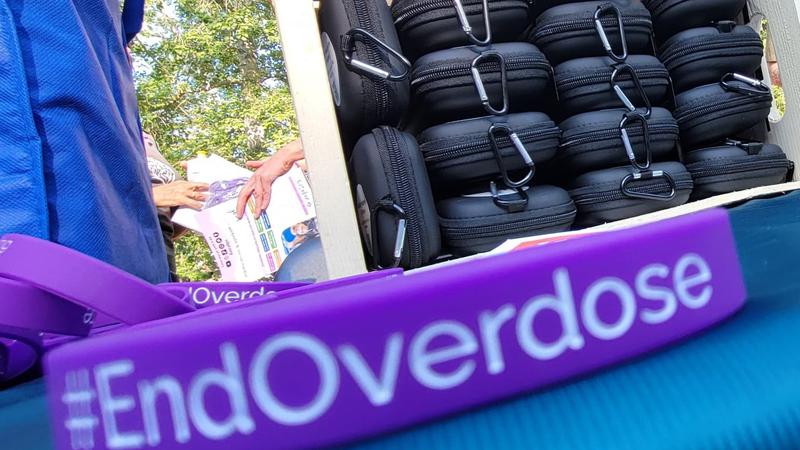
As deaths mount, Overdose Awareness Day means more for Red Deerians experiencing substance use
Building hope was the goal for this year’s International Overdose Awareness Day, Aug. 31.
Turning Point Society held an event Wednesday evening, from 5-8 at the Rotary Picnic Shelter in downtown Red Deer. Community agencies were on hand, clients of the Overdose Prevention Site spoke to attendees, and there was naloxone training.
According to Turning Point, 440 central Albertans received overdose response training from Turning Point staff in the first six months of 2022. In that same span, 2,536 free to obtain naloxone kits were given to central Albertans.
Now trained to deliver life-saving help should they be carrying their kit and encounter someone overdosing on a potentially fatal drug such as fentanyl or carfentanil, those folks are part of the budding hope.


